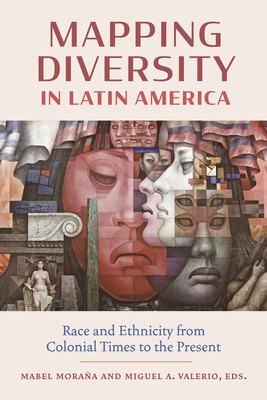
- We will send in 10–14 business days.
- Publisher: Vanderbilt University Press
- ISBN-10: 0826507247
- ISBN-13: 9780826507242
- Format: 15.2 x 22.9 x 3 cm, minkšti viršeliai
- Language: English
- SAVE -10% with code: EXTRA
Mapping Diversity in Latin America (e-book) (used book) | bookbook.eu
Reviews
Description
Mapping Diversity in Latin America offers ample critical coverage of recent approaches to the historical study of race and ethnicity in Latin America since the arrival of Spanish and Portuguese colonizers to the present. Bringing together the work of leading scholars, this volume presents readers with a thorough and updated examination of the formation and evolution of ideas surrounding race and ethnicity, social movements, and political processes in Latin America that provides multiple routes for future research on the topic. The book's nineteen chapters establish the basis for a productive comparative analysis of racial developments in the whole continent to allow for a combination of diachronic and synchronic study of regional processes. Both the scope of the book and the historical and geocultural coverage on these topics are unique in the field of Latin American Studies. Taking an interdisciplinary approach to understanding issues of collective identity, otherness, alterity, and the like, Mapping Diversity in Latin America sheds light on histories that have been traditionally overlooked in texts on race in Latin America, such as the rich history of diasporic Asian, Syrian Lebanese, and Jewish communities, and the more recent emergence of Latinx populations in the United States. The book includes a critical examination of fundamental concepts such as mestizaje, mulataje, creolization, negritud, and blanquitud, as well as critical and theoretical approaches to the study of these issues in postcolonial societies.EXTRA 10 % discount with code: EXTRA
The promotion ends in 23d.14:31:33
The discount code is valid when purchasing from 10 €. Discounts do not stack.
- Publisher: Vanderbilt University Press
- ISBN-10: 0826507247
- ISBN-13: 9780826507242
- Format: 15.2 x 22.9 x 3 cm, minkšti viršeliai
- Language: English English


Reviews